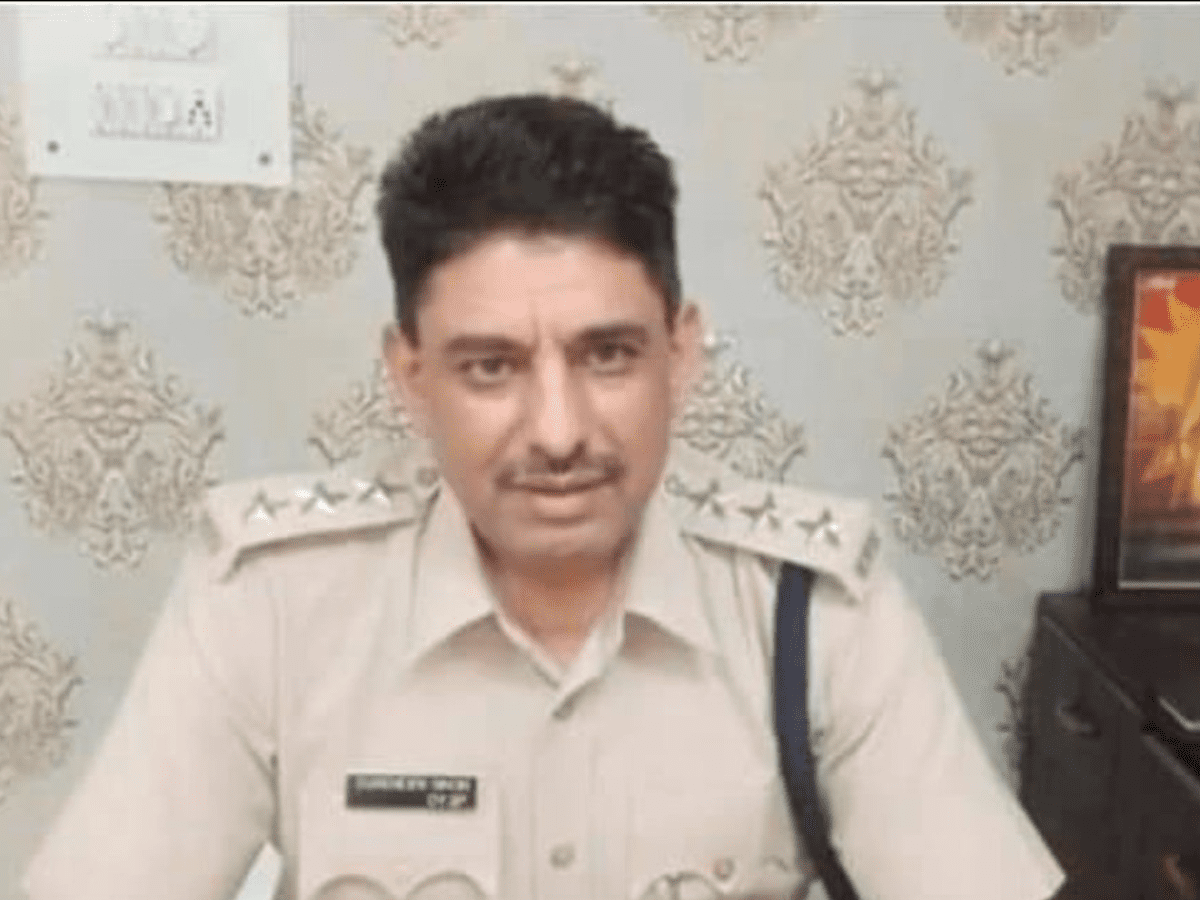
Nuh: The mowing down of a Haryana police officer by a dumper truck here reflects the enormous challenge authorities face in curbing illegal mining in the Aravallis despite frequent crackdowns and a Supreme Court ban.
Deputy Superintendent of Police (DSP) Surendra Singh investigating illegal stone mining was killed here on Tuesday when a truck he signalled to stop drove into him.
According to Tauru residents, dumpers carrying large stones for mining often pass through the area, generally late in the night or early morning, and the quarried stones are dropped in crusher zones in nearby places.
The undulating terrain also aids in the illegal activities in the Aravallis, they said.
Referring to Singh’s killing, locals said it seems that the mining mafia does not have any fear of the law.
Notably, the Supreme Court banned all forms of mining first in 2002 and then in 2009 in the eco-sensitive Aravallis in Faridabad, Gurugram and Mewat.
Senior Congress leader Randeep Singh Surjewala has demanded a judicial inquiry into the killing of DSP Singh. He alleged that the mining mafia was getting patronage from the government.
Leader of Opposition in Haryana Bhupinder Singh Hooda said, “When the mafia is working on this scale and has no fear, it is clear that it has got patronage.”
In December 2021, a truck driver was booked on the charge of attempt to murder for allegedly hitting a senior police official’s vehicle here during a night domination exercise to check overloaded vehicles and illegal mining.
According to state government data, 68 vehicles involved in illegal mining have been seized and 23 FIRs have been registered in Nuh so far in the financial year 2022-23. Fines worth Rs 4,28,400 were recovered from illegal miners in Nuh during this period.
As many as 239 FIRs were registered against illegal mining in Nuh in 2021-22.
Recently, while hearing a petition filed by the Aravalli Bachao Citizens Movement alleging that illegal mining was going on in at least 16 locations in the Aravalis, the National Green Tribunal (NGT) directed the Haryana State Pollution Control Board and Nuh, Gurugram and Faridabad administrations to form a joint committee and conduct inspections.
The Aravali Bachao Citizens Movement, a group of activists working for protecting the Aravallis, had alleged that large swathes of the hills were being destroyed by illegal mining and unchecked mining activity would cause irreversible damage to the eco-sensitive region. It pointed out that the Aravallis are the lungs of the National Capital Region.
The Aravalli mountain range spans different states including Haryana, Rajasthan and Delhi, and is home to many species of mammals, birds and wild animals including leopards.
A state government spokesperson said it has been decided to use satellite imagery for regular monitoring of mining in the state. Along with this, in future, all vehicles carrying material from mining contract area of any mineral will be equipped with GPS.
Police posts will be set up near the mining area as well as additional posts will be set up at borders with other states.
The spokesperson said the government has taken stringent steps from time to time to check illegal mining in the state, including constituting a District Level Task Force (DLTF) under the chairmanship of the concerned deputy commissioner.
This DLTF conducts surprise inspections of the affected areas and is fully equipped to take strong action at the ground level.
The spokesperson said illegal mining does not only mean illegal work of mined material but also includes illegal transportation of mined material by vehicles. Due to this, such vehicles carrying illegal mining material are confiscated by the Mines, Geology Department as well as the police, he said.
He said strict directions have been issued by the government to deputy commissioners (DC) and superintendents of police regarding illegal mining.
DCs have been directed to ensure that regular meetings of the DLTF are convened to review the action taken on illegal mining, the spokesperson said.
They have also been instructed that illegal works should be investigated, sensitive areas prone to such activities should be identified and special teams of officers should regularly inspect these areas, he said.
